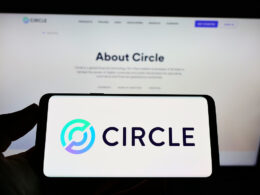The White House announced on Tuesday that all the primary manufacturers of the 10 drugs selected in August for Medicare price negotiations have agreed to participate in the program. This development follows the recent deadline for drugmakers to sign agreements to engage in the initial round of negotiations, as mandated by last year’s Inflation Reduction Act. The negotiated prices will come into effect in 2026.
Hopes for a last-minute legal intervention were dashed when a federal court judge in Ohio denied the U.S. Chamber of Commerce’s request for a preliminary injunction that could have halted the program before October 1. This decision solidifies the progress of the Medicare price negotiations.
The selection of these 10 drugs, including renowned medications like Bristol Myers Squibb Co.’s blood thinner Eliquis, Boehringer Ingelheim’s heart-failure drug Jardiance, and Merck & Co. Inc.’s diabetes drug Januvia, holds great significance. Collectively, these drugs accounted for $3.4 billion in total out-of-pocket costs for approximately 9 million Medicare enrollees in 2022. Out-of-pocket costs for Medicare Part D enrollees ranged from $261 for Novo Nordisk’s insulins Fiasp and NovoLog to $6,497 for Imbruvica, the blood cancer treatment manufactured by Pharmacyclics LLC, a unit of AbbVie Inc.
The selected drugs play a vital role in treating various health conditions such as arthritis, diabetes, Crohn’s disease, and cancer. They are among the costliest and most commonly-used prescription medications available.
Despite the progress made, the program faces ongoing legal challenges. Novo Nordisk recently filed a lawsuit against the federal government, joining several other industry players who have already taken legal action. The lawsuit alleges that regulators violated the law by grouping together products with the same active ingredient, effectively selecting more than 10 individual drugs for the first round of negotiations. Notably, Novo Nordisk’s insulin products, Fiasp and NovoLog, were included as one of the 10 drugs selected for negotiation.
Currently, there are at least nine pending lawsuits challenging the program. These legal battles highlight the complexity and significance of Medicare price negotiations in the healthcare industry.
Challenging Republicans’ Stance on the IRA and Negotiation Program
The recent announcement from the White House has shed light on Republicans’ lack of support for the IRA (Infrastructure Investment and Jobs Act) and its negotiation program. The memo from White House Deputy Press Secretary Andrew Bates underscores the concerns regarding House Republicans and their endorsement of Big Pharma’s lawsuits. These lawsuits aim to protect the pharmaceutical companies’ ability to charge excessively high prices without any negotiation.
Representative Morgan Griffith of Virginia gave voice to these concerns during a June hearing, stating, “My thought is, of course Merck sued, and every drug manufacturer probably ought to sue because it is on its face an unconstitutional taking.” Griffith’s comments were in reference to the first legal challenge to the program, filed by Merck.
In response to the legislation, several drugmakers have reluctantly signed the negotiation agreements. Their decision is driven by the fact that non-participating companies may face an excise tax on sales of the selected drugs. Alternatively, they may be required to withdraw all of their products from Medicare and Medicaid programs.
Affected drugmakers were required to submit data by Monday in order for Medicare to consider negotiating a maximum fair price for the selected drugs. Johnson & Johnson has indicated that it will comply with the requirements of the negotiation program, though it remains critical of the IRA’s drug-pricing provisions. According to a spokesperson for Johnson & Johnson, these provisions “are damaging to the innovation ecosystem that delivers transformative therapies and cures to patients.”
AbbVie, another pharmaceutical company, has also expressed its intentions to participate in the negotiation process. However, they maintain their position that the program does not constitute a legitimate negotiation. AbbVie believes that the IRA’s negotiation program is unconstitutional, involuntary, and poses a threat to scientific advancement for patients both in the United States and around the world.





